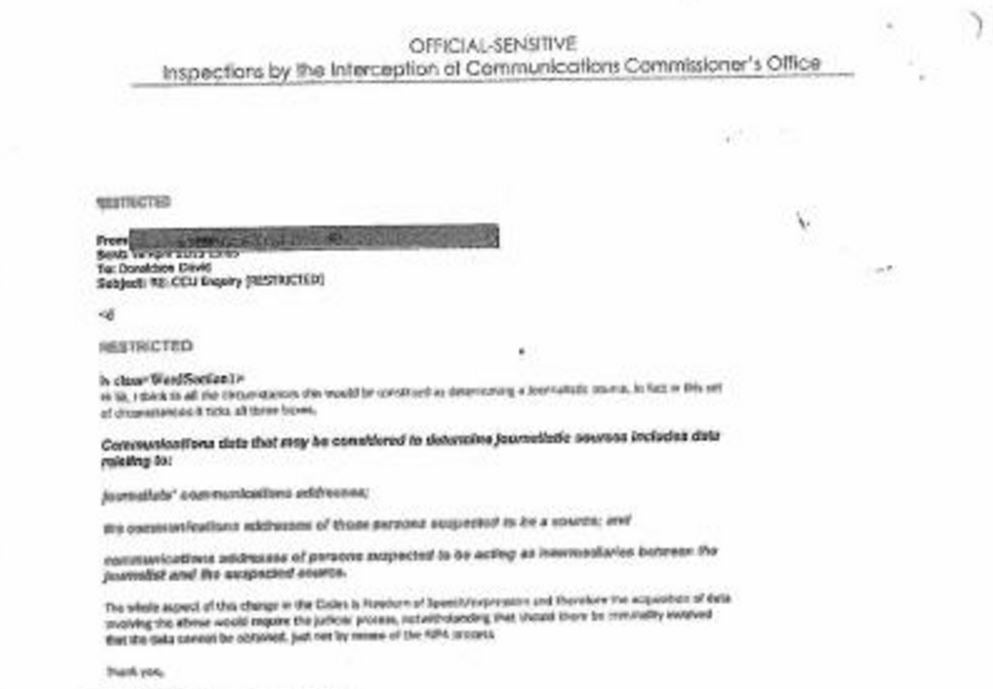
Leaked internal emails have revealed Police Scotland sought access to the telecoms records of Sunday Mail journalists’ sources despite being warned this was illegal.
The revelation has undermined evidence given by acting deputy chief constable Ruaraidh Nicolson to Holyrood’s Justice Committee in which he repeatedly claimed detectives were not warned in writing against using the Regulation of Investigatory Powers Act to access journalists’ telephone and email data despite the emails existing as proof that written warnings were made.
Reforms to RIPA, made in March last year following Press Gazette’s Save Our Sources campaign, mean any police attempt to access telecoms records to identify a journalistic source must be approved by a judge.
The emails, published in the latest edition of the Scottish Sunday paper, reveal that police set up an investigation to track down the source of a story about a forgotten suspect in the unsolved murder of Emma Caldwell, who was killed ten years ago, just two days after it broke in April last year.
Speaking to Press Gazette, Sunday Mail editor Jim Wilson said: “It is worrying that such senior officers did not understand the legal changes designed to protect journalists’ sources but more worrying that they ignored the repeated warnings of those who did.
“They dropped applications to seize journalists’ phone and email data but, despite clear advice, pressed on with others, equally unlawful, intended to identify our sources and any intermediaries.”
It took another seven weeks for detectives to reopen the cold case in light of the new information and then, according to Wilson, only after the Lord Advocate (Scotland’s senior law officer) ordered them to.
He added: “The decision to try to identify our sources instead of immediately reopening the murder inquiry was the wrong one. The protection of sources is fundamental to a free press but, most importantly, the police should have been more concerned with the content of our stories rather than the sources.
“After all these years, Emma Caldwell and her family still deserve justice. They should have been the priority for the police not us.”
He noted a report on the matter by Sir Stanley Burnton, the Interception of Communications commissioner, said Police Scotland’s attempt to find sources was “unlawful and reckless” and that the Sunday Mail’s stories had been written “in the public interest”.
Wilson said of RIPA that it was “never designed to be used against journalists” but added: “Given those powers, the police, in Scotland and elsewhere, have used them repeatedly to identify sources.
“These molehunts undoubtedly deter others. That’s what they are intended to do.”
Asked whether the RIPA reforms went far enough in protecting journalists and their sources, he said: “The changes to the law are a step in the right direction.
“At the very least they mean police will need to take greater care before using techniques designed to catch terrorists and serious criminals to identify journalists’ sources but it is only one step and the flow of information from public bodies is being slowed in many different ways.”
In February 2015, the Interception of Communications Commissioner revealed that UK police forces had used RIPA 82 times in the previous three years in order to secretly seize telecoms records for the purpose of identifying journalistic sources.
Email pged@pressgazette.co.uk to point out mistakes, provide story tips or send in a letter for publication on our "Letters Page" blog
